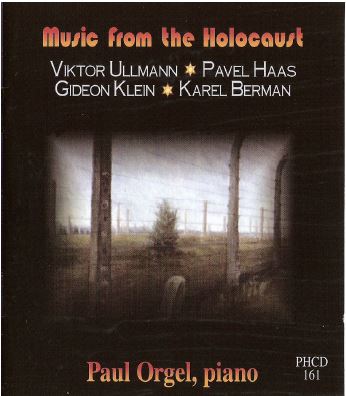
Klein, Gideon
Gideon Klein (1919-1945) was born in Prerov. Moravia on December 6, 1919. A brilliant pianist, intellect, and immensely promising composer, his first compositions date from 1934, when he was only fifteen. Klein studied piano at the Prague Conservatory with Vilém Kurz and composition under Alois Hába at the Charles University. These studies came to an abrupt end in November of 1939 when, after the German invasion, Czech universities were shut down. The immediate application of Nazi racial laws, among other deprivations, prohibited Jewish artists from performing publicly. As a result, Kleins only recourse was to participate in clandestine performances using a non-Jewish pseudonym, Karel Vranek. An opportunity to leave for England, where friends had arranged for a scholarship to the Royal Academy of Music, came to naught due to a denial of permission to leave the country. On December 4, 1941, he was deported to Terezin where he would remain for close to three years, intensely involved in the cultural life of the camp as teacher, performer and composer. In October 1944 Klein was included in one of the last transports to Auschwitz. Upon arrival he passed the selections, thereby escaping the gas chambers. He was then sent to Fürstengrube where he worked in the coal mines. The eastern front approached in January 1945, after which the camp was evacuated and at this time all traces of Klein end. It remains unknown whether he was sent on a death march, succumbed to illness or starvation, or whether he fell victim to the SS commandos whose task was to liquidate those too ill to walk. On the basis of his surviving compositions, it is clear that, had Klein survived, he would have been one of the leading post-war Czech composers. (His pre-Terezin compositions, presumed lost for many years, were discovered in 1990).
